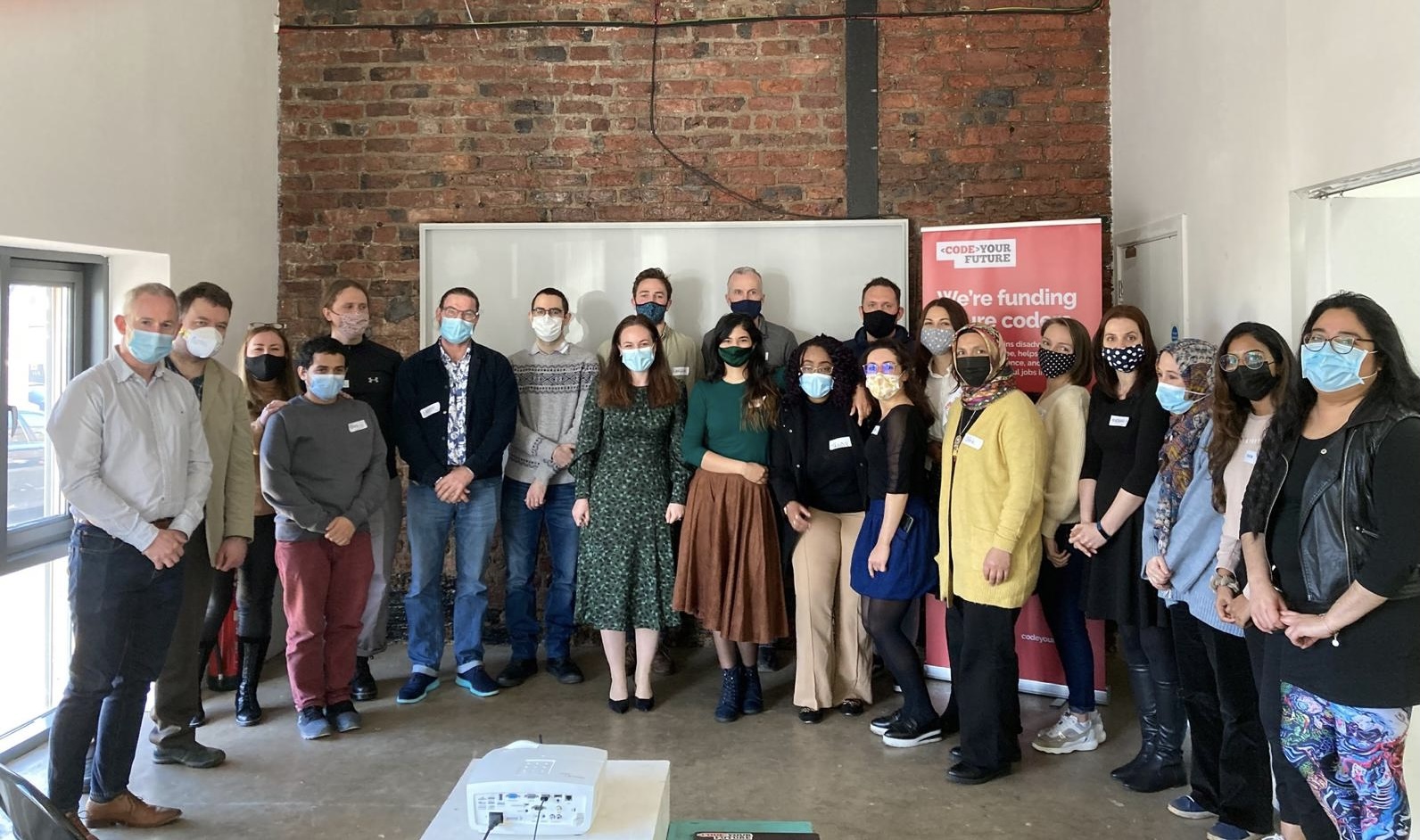A charity that teaches refugees and disadvantaged people how to code has been awarded funding as part of the Scottish government’s drive to create a world-class tech industry.
The volunteer-led organisation CodeYourFuture received £165,000 from the ecosystem fund after meeting with Scottish Economy Secretary Kate Forbes.
With the unemployment rate of refugees standing at 18 per cent in the UK combined with the nation’s ever-growing poverty statistics, currently at 15m people, CodeYourFuture looks to alleviate the socio-economic barriers preventing the most deprived from gaining employment in the technology sector.
Almost all – 96 per cent – of those beginning in the programme have next to no experience but 70 per cent of graduates have gone on to find employment or full time study. One of those is Mohammed Dwina.
Dwina came to the UK as a refugee from Sudan in 2015 and described his initial integration experience as difficult but said it’s great to see how far he has come since.
Dwina told The Big Issue: “This country was completely different from where I came from, everything from finding work, culture, language, people and of course the weather, all of these things made it extremely challenging in the beginning.”











